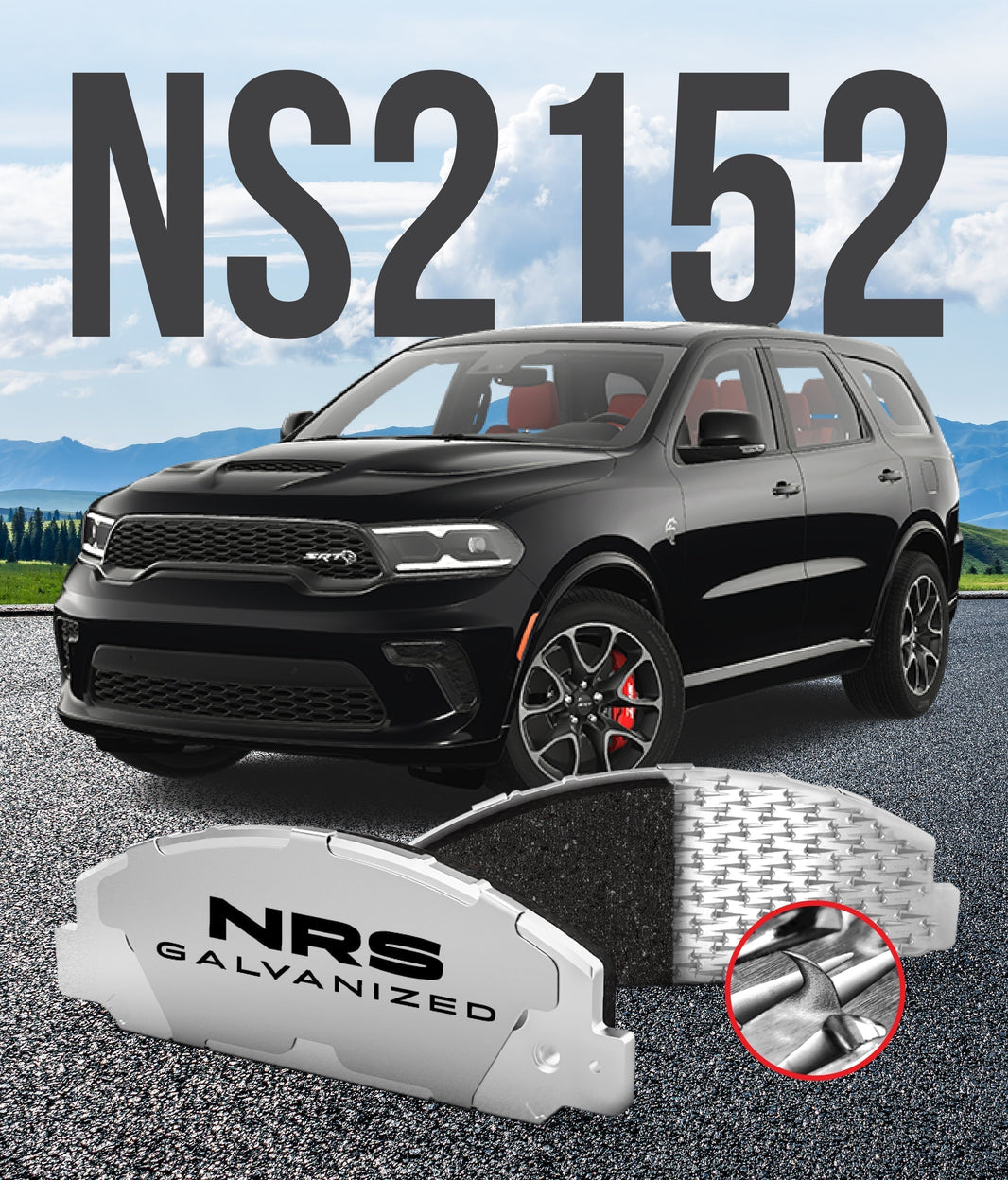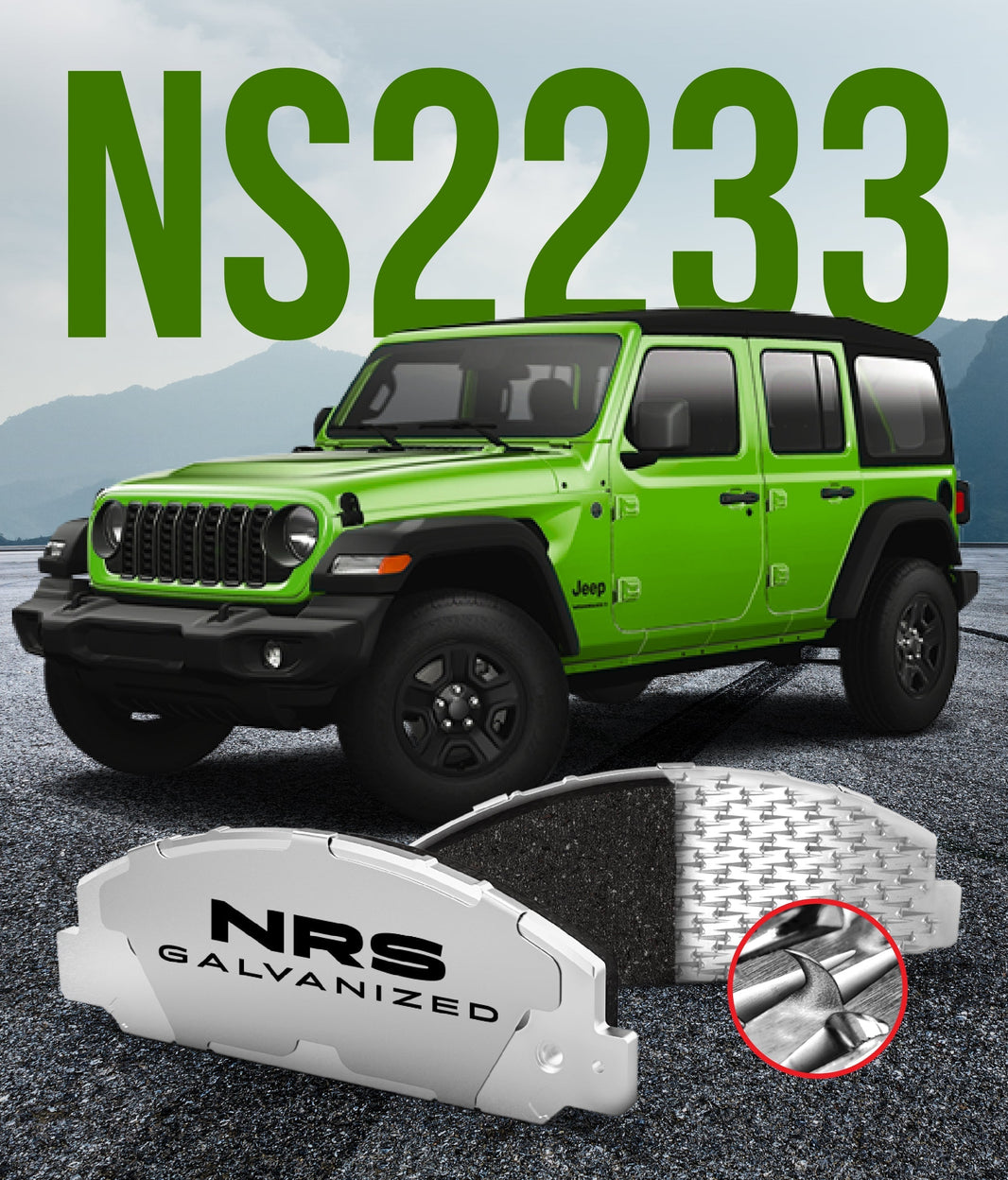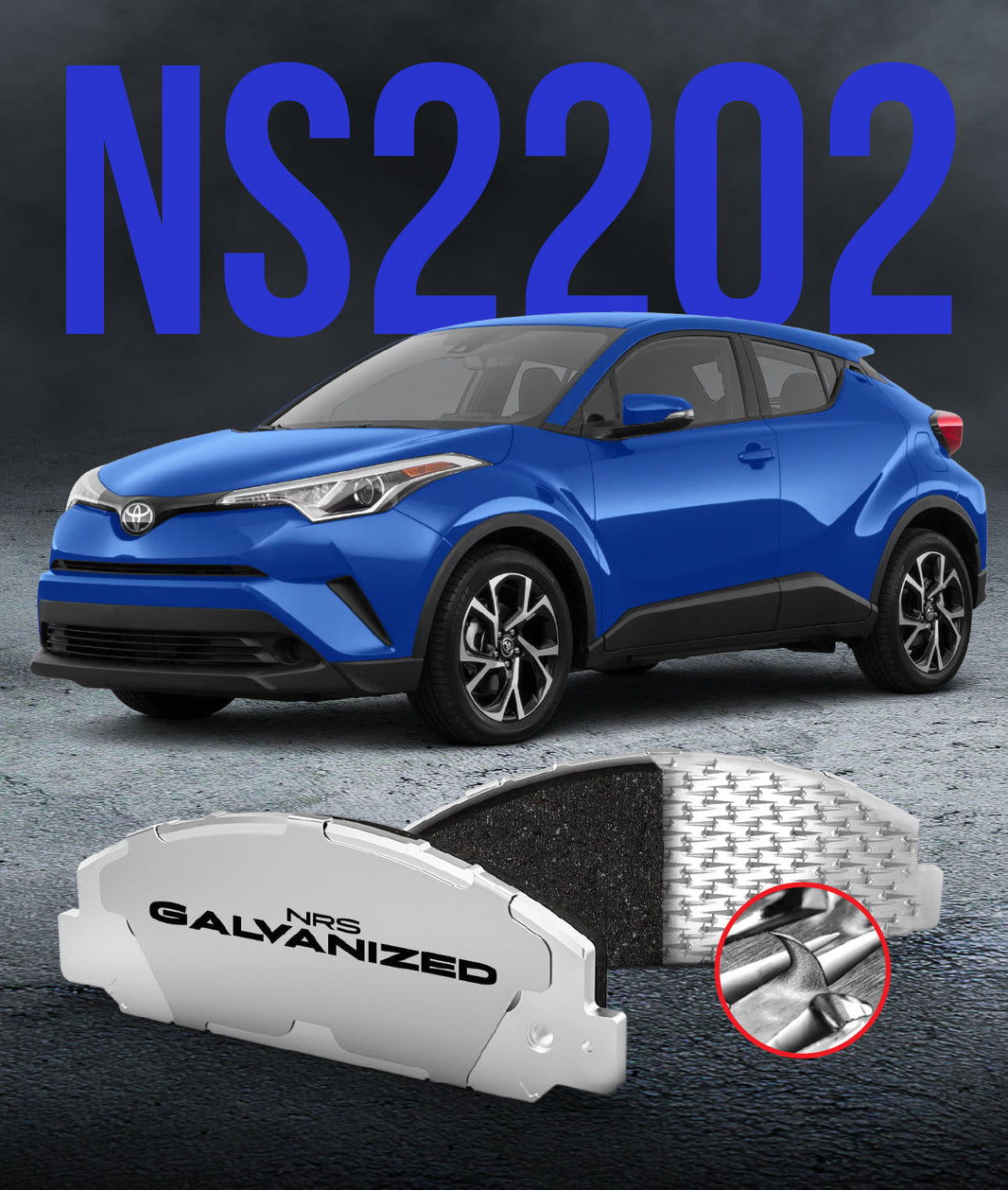
When you drive a truck or a vehicle used for towing, you're commanding a machine built for capability. Whether you're hauling a heavy payload for work, towing a trailer for a weekend adventure, or navigating challenging terrain, you rely on your vehicle's power and strength. However, the most critical system isn't the one that makes you go, but the one that makes you stop.
The immense forces involved in slowing down a heavy vehicle place extraordinary demands on its braking system, and standard passenger car brake pads are simply not equipped for the job. Choosing the right Heavy-Duty Brake Pads is not just a matter of performance; it's a crucial decision for your safety and the longevity of your vehicle.
The Unique Stresses of Heavy-Duty Braking
The act of stopping a multi-ton truck or a truck-and-trailer combination is a monumental task that generates extreme physical forces. These forces are far greater than what is experienced by a typical sedan or SUV and they punish brake components in several key ways. Understanding these stresses is fundamental to appreciating why specialized pads are necessary.
First and foremost is the issue of extreme heat generation. The basic principle of braking is converting kinetic energy (the energy of motion) into thermal energy (heat) through friction. The heavier the vehicle and the faster it's moving, the more kinetic energy there is to convert.
Stresses on Heavy-Duty Brake Pads
Stopping a loaded truck, especially on a long downhill grade, can cause brake temperatures to skyrocket, far exceeding the operational range of standard brake pads. This intense heat can lead to a dangerous condition known as brake fade, where the friction material overheats and loses its ability to grip the rotor, resulting in a terrifying loss of stopping power.
In addition to thermal stress, there is immense mechanical stress. The physical force required to slow a heavy, rotating wheel assembly places enormous shear stress on the brake pad itself, specifically on the bond between the friction material and its steel backing plate. This force tries to literally rip the friction material puck off the steel plate. In a heavy-duty scenario, these forces are magnified, relentlessly testing the integrity of the pad's construction with every stop. A weak bond is a significant point of failure.
Environmental Challenges for Heavy-Duty Brake Pads
Finally, heavy-duty vehicles often operate in demanding environments. They are exposed to everything from debris from construction sites and backroads to the corrosive onslaught of road salt in winter. These contaminants can accelerate wear and tear, while moisture and salt can cause rapid corrosion of unprotected steel brake components. The combination of high heat, intense mechanical force, and harsh environmental conditions creates a perfect storm that can quickly destroy inadequate brake pads.
Why Standard Brake Pads Often Fail in Heavy-Duty Roles
Given the severe conditions, it becomes clear why brake pads designed for a lightweight passenger car are ill-suited for a truck or towing vehicle. Their design prioritizes quiet operation and low cost, often at the expense of the durability and high-temperature performance required for heavy-duty work.
Structural Integrity of Standard Pads
The structural integrity of standard pads is a major issue. They typically use a simple painted or uncoated steel backing plate. As we've discussed, this offers little real protection against corrosion. In a heavy-duty vehicle that's frequently exposed to the elements, these plates can rust quickly, compromising the pad's structure and the all-important bond with the friction material.
The Adhesive Bond
This leads to the most critical failure point: the adhesive bond. Traditional pads rely on specialized glues to hold the friction material to the backing plate. The combination of extreme heat degrading the adhesive and the immense shear forces of heavy braking can cause this bond to fail, resulting in delamination – a catastrophic event where the friction material separates from the backing plate. This is one of the most dangerous types of brake failure, and its risk is significantly higher when standard pads are used in heavy-duty applications.
What Defines a True Heavy-Duty Brake Pad?
A genuine heavy-duty brake pad is not just a standard pad made slightly thicker. It is engineered from the ground up to withstand the specific stresses of heavy loads and high temperatures. There are several key characteristics to look for.
Robust Backing Plate Construction
A true heavy-duty pad must have a robust backing plate construction. It needs to resist the flexing and stress of heavy braking and, most importantly, it must be highly resistant to corrosion. A backing plate that rusts is a structural weakness that is unacceptable in a heavy-duty context. The backing plate MUST be galvanized.
Superior Bonding Technology
And perhaps most critically, is the use of superior bonding technology. Recognizing the limitations of adhesives under high heat and shear stress, advanced heavy-duty pads often employ methods beyond simple gluing. A mechanical attachment system provides a physical connection between the friction material and the backing plate, offering a level of security that adhesives alone cannot match.
Is there such a brake pad on the market?
The NRS Galvanized Approach: Specifically Engineered for Heavy-Duty Demands
NRS Galvanized Brakes embody the principles of heavy-duty brake design, creating pads that are specifically engineered to thrive under the conditions that cause traditional pads to fail. As the seed content highlights, our goal is to produce the "world’s longest lasting brake pads" by focusing on superior construction and materials.
This engineering philosophy is built on two core technological pillars that directly address the primary failure modes of brake pads in heavy-duty applications: corrosion and delamination.
Galvanized Steel Construction – The Foundation of Durability
Every NRS brake pad is built on a galvanized steel backing plate. Galvanization is a process that coats the steel with a protective layer of zinc, a technology proven to provide exceptional, long-lasting corrosion resistance.
This is not just a layer of paint. The zinc coating provides active electrochemical protection, preventing rust from forming even when the pad is constantly exposed to road salt, mud, and moisture. For a truck or towing vehicle, this means the pad's structural foundation remains strong and intact throughout its service life. A rust-free backing plate cannot swell, bind in the caliper, or have its integrity compromised, ensuring consistent performance and allowing the premium friction material to be used to its full potential.
Patented NRS™ Technology – A Mechanical Bond That Won't Quit Under Pressure
To address the immense shear forces of heavy-duty braking, NRS Brakes utilizes its patented NRS™ mechanical attachment technology. This award-winning system creates a physical interlock between the friction material and the backing plate.
Instead of relying on adhesives that can weaken with heat, NRS forms hundreds of small, sharp hooks directly into the surface of the galvanized backing plate. When the premium friction material is molded, it flows around and locks onto these hooks, creating a permanent mechanical bond. This guarantees that the friction material "never delaminates," even under the most extreme braking forces generated by a fully loaded truck or trailer. This is the ultimate safety feature for heavy-duty applications, providing peace of mind that the pad will hold together when you need it most.
Premium Friction Materials – Consistent Stopping Power
NRS complements its robust construction with premium friction materials. These compounds are selected and formulated to provide the high thermal stability and consistent friction characteristics required for heavy-duty use. This ensures reliable, fade-resistant stopping power, stop after stop, even on long descents or in demanding stop-and-go traffic with a heavy load.
Real-World Reliability for Your Truck and Towing Vehicle
The combination of a galvanized steel foundation, a fail-safe mechanical bond, and high-performance friction materials results in a brake pad perfectly suited for the rigors of heavy-duty use. Brake Pads for the truck or towing vehicle owner, the benefits are clear and substantial.
The primary benefit is enhanced safety. The elimination of delamination risk and the assurance of consistent, fade-resistant braking under load provide a critical margin of safety when it matters most. The second major benefit is longevity and cost-effectiveness. Because NRS pads resist the corrosion and structural failures that plague traditional pads, they last significantly longer. This means fewer brake jobs, less vehicle downtime (a critical factor for work trucks), and a lower total cost of ownership over the life of the vehicle.
NRS Brakes understand that owners of trucks and towing vehicles require a higher standard of performance and reliability from their components. Our Heavy-Duty Brake Pads are not just adapted for these tasks; they are specifically engineered for them. Through our patented NRS™ mechanical attachment and the use of galvanized steel construction, we provide a solution that directly addresses the challenges of extreme heat, heavy loads, and harsh environmental conditions. We are committed to producing the Best Brake Pads on the market, offering the unparalleled safety, durability, and long-lasting performance that heavy-duty applications demand.




